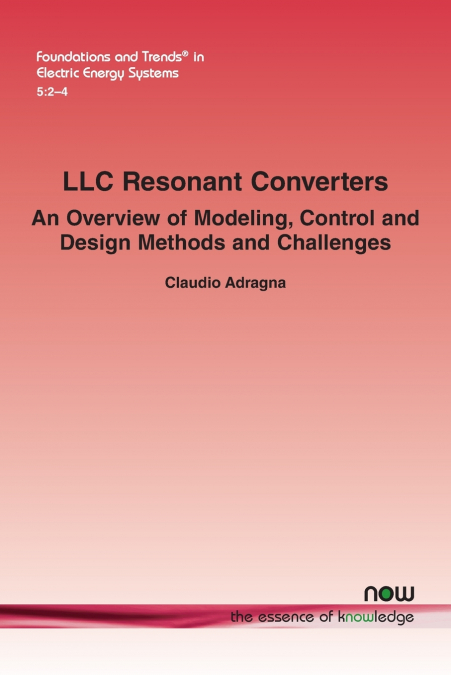
Claudio Adragna
A resonant converter is a type of electric power converter that contains a network of inductors and capacitors called a 'resonant tank', tuned to resonate at a specific frequency. They find applications in electronics and integrated circuits. The LLC resonant converter is perhaps today’s most popular resonant conversion topology. Though in existence for many years, only relatively recently has the LLC resonant converter gained in popularity. Since its first appearance in the literature in 1988, for a long time it was confined to niche applications such as high-voltage power supplies or high-end audio systems. Its significant industrial usage started in mid 2000s with the boom of flat screen TVs, whose power supply requirements found in the LLC resonant converter their best answer, and was fueled by the introduction of new regulations, both voluntary and mandatory, concerning an efficient use of energy. This combination of events pushed power designers to find more and more efficient AC-DC conversion systems. Since then, several other mass-produced electronic devices, such as All-In-One and small form factor PCs, high-power AC-DC adapters and LED drivers, have made a massive usage of this topology, especially in its half-bridge version. Higher power systems, such as server and telecom power supplies and, more recently, charging stations for electric vehicles, have adopted mainly the full-bridge version. Much progress has been made on both the theoretical and practical aspects related to the LLC resonant converter. Numerous publications and application notes deal with it, and many IC manufacturers have dedicated driver ICs in their portfolio. Despite that, its design is still considered a challenging task in Power Conversion. Thus, a guided tour through its intricacies may be beneficial to both the neophyte and the experienced engineer, as well as students active in this field. This monograph covers the basics (operating modes, soft switching mechanism, first-harmonic approximation, etc.) and advanced topics (design optimization, control methods, synchronous rectification, interleaving, etc.) of power conversion using the LLC resonant converter, using a hands-on, design-oriented approach.